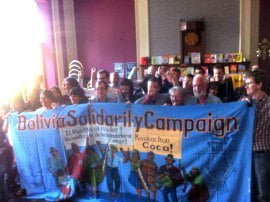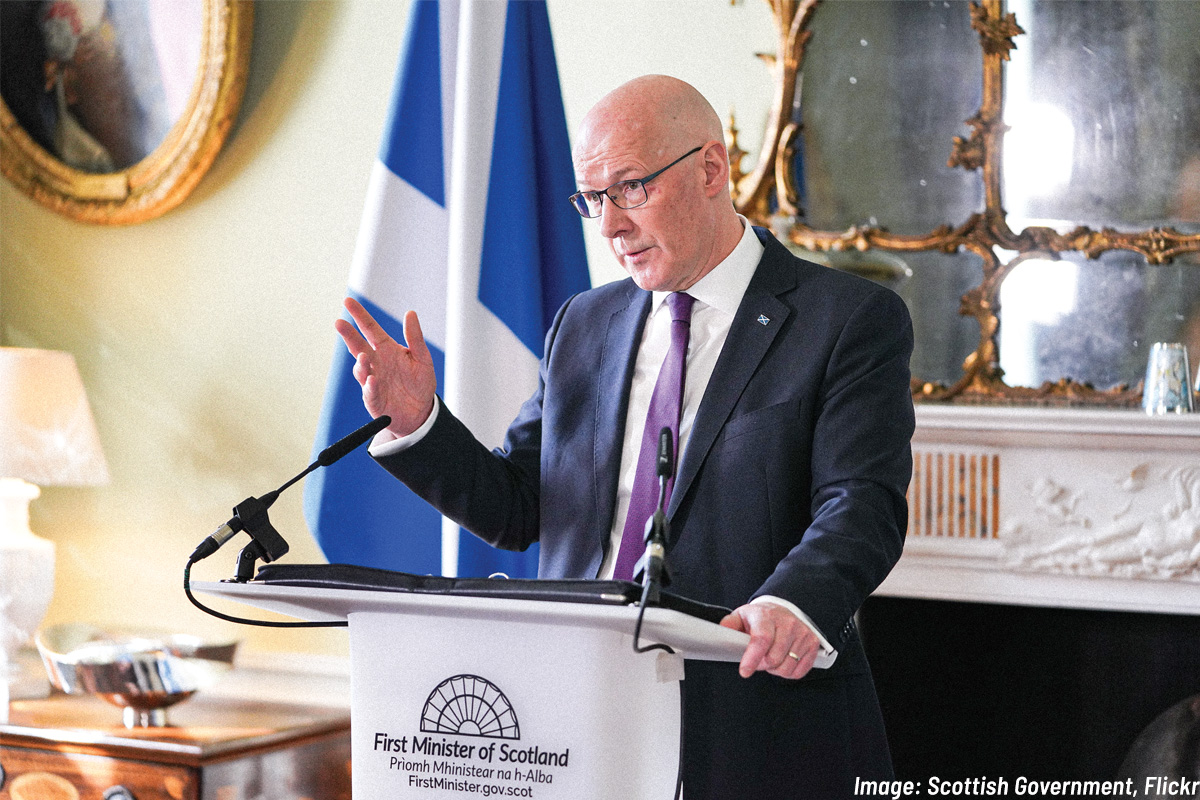After months of uninterrupted work, supporters of the International Marxist Tendency and Socialist Appeal, in collaboration with Hands off Venezuela and the Solidarity with Bolivia campaigns, launched the first one-day conference of its kind in Edinburgh on the 9th of June. “La Revolucion” tackled the different movements against the capitalist system across several countries, and made a special emphasis on the international nature of the crisis and class struggle.
After months of uninterrupted work, supporters of the International Marxist Tendency and Socialist Appeal, in collaboration with Hands off Venezuela and the Solidarity with Bolivia campaigns, launched the first one-day conference of its kind in Edinburgh on the 9th of June.
With the title La Revolucion, this conference was oriented towards the large Spanish-speaking community in Edinburgh, where a large population of Spaniards have moved to in the last few years, being also home to a sizeable group of South American people. La Revolucion tackled the different movements against the capitalist system across several countries, and made a special emphasis on the international nature of the crisis and class struggle.
With the help of fantastic guest speakers – such as Amancay Colque, from Solidary with Bolivia, Jordi Martin, from Hands Off Venezuela, and Carmen Maximo along with Miguel Jimenez, from the International Marxist Tendency and members of the Marea Verde’s campaign for the defence of public education – this conference provided the grounds for honest and revolutionary discussion which is so very needed in these times. In addition, a Chilean member of the audience, Camila Camacho, improvised a brief first-hand account of the student movement in Chile.
The day school was of great educational value, and attendants got to hear and talk about real problems that affect us all today. From the war for the natural resources in Bolivia, and the debt and austerity measures in Spain, to the legacy of President Chavez and the revolutionary mood in Venezuela, the conference gave an accurate and complete picture of the need for revolutionary change.
Despite the rare beautifully sunny day, the conference attracted a great number of people, reaching over 50 during the three talks. The audience was made up of a high proportion of Spanish youth, from a radicalised society in the face of the brutal austerity measures, and also members of the South American community in Edinburgh, with Mexicans, Bolivians, Chileans and Argentinians present. It also caught the attention of Scots and even Italians, and so the room itself gave a positive feeling of internationalism and solidarity. After each talk, members of the audience had the chance to come forward with new points for discussion, adding to the in-depth political analysis in a dynamic and participatory way.
 As the conference went on, analysing the past and present revolutionary processes across Bolivia, Chile, Spain and Venezuela, it became clear that all these countries have a common problem, and that it requires a common and international solution. There must be no national borders for the international working class, and as the crisis of capitalism goes on, forcing many to emigrate from their homelands in order to find a job, the fight against this system must continue here and there. Workers should fight with an international perspective regardless of where they come from and where they live.
As the conference went on, analysing the past and present revolutionary processes across Bolivia, Chile, Spain and Venezuela, it became clear that all these countries have a common problem, and that it requires a common and international solution. There must be no national borders for the international working class, and as the crisis of capitalism goes on, forcing many to emigrate from their homelands in order to find a job, the fight against this system must continue here and there. Workers should fight with an international perspective regardless of where they come from and where they live.
Different governments, different currencies, even different continents, seem to create very similar conditions for the majority of the population, being poverty, unemployment, exploitation and misery. Moreover, as the talks on Bolivia and Venezuela pointed out, even though the nationalisation of the key industries must be one of the first demands for the working class, this in itself cannot solve the fundamental contradictions that are present in any capitalist society.
As long as capitalism prevails, the government of any country must give way to concessions, sabotage of the industry by the capitalist thugs, unemployment and oppression. The impossibility of reforming a system based upon the concentration of natural and economic resources in the hands of individuals became obvious as the discussions in the conference went on, for they only represent their own private interests of greed and domination.
Only a socialist system, based upon the democratic control of the industry and economy in the hands of the organised workers, can solve the contradictions of present day society. Under the democratic control of the majority of the population and with an international perspective, all the richness of the natural resources, all the technology and productive forces of which the human being is capable of, would be put to the service of society as a whole, for everyone to enjoy and benefit from, and away from the interest for profit that so much suffering has caused us.






